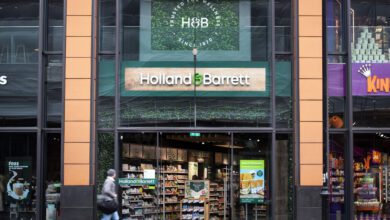
How often have we heard of the demise of a retailer being linked to poor decision-making? For a long time (at least pre-pandemic), an inability to combat the rise of ecommerce was often positioned as the reason for many retailers’ struggles. Just look at Blockbuster – we’ve all heard how it once turned down the opportunity to buy Netflix.
It is not just about being decisive, although who wants to be labelled indecisive? We have to make the right decisions. And yet it is rarely one moment that seals a company’s fate – Blockbuster’s demise was sealed long before it declined that opportunity. How? Because more often than not, the choices we hear about are merely the most notable of a whole raft of decisions, all influenced by an organisation’s unique culture.
Retail decision-making – based on gut instinct and spreadsheets
So how are decisions made, and how do retailers compare in that regard to companies in other sectors?
To find out, we recently surveyed a variety of decision-makers across multiple sectors, including retail. The State of Decision-Making study found that half of retailers make business decisions based on data and insights, but ‘gut feeling’ decisions are still made by half. This is perhaps unsurprising when just under a quarter said their biggest challenge was getting hold of data and insights, and a similar number lacking the ability to scenario plan – a greater source of frustration in retail than other sectors, where just 17% found it a challenge.
The results might seem at odds with the fact that we are operating in an era when businesses are constantly creating data, but it serves to highlight how organisations struggle with the proper use of the intelligence they generate. This failure can lead to missed opportunities – a major issue when trying to survive in uncertain markets.
What’s more, 54 percent still rely on spreadsheets to aid their decision-making. A decision-making staple, the results raise questions on how suited retailers are to operating in a fast-paced world. With spreadsheets relying on manual input, it is little wonder that other research has found that up to 90 percent of all spreadsheets have errors that affect their results. It is also telling that respondents felt that decision-making can be improved with the introduction of new technology, with half saying this would make their processes better.
There are some positives, however. Retailers appear to have a more cohesive approach to decision-making than other businesses in other sectors – while one third of all respondents said that crucial business decisions are made in departmental silos, that number dropped to slightly more than a quarter of retailers.
Three ways to fix decision-making
At a time when being able to make fast, effective decisions is generally the difference between success and failure, the results indicate that many retailers are struggling to operate with cultures and processes that hinder, rather than support, decision-making. What, then, do UK retailer need to consider if they are to improve this critical issue?
Firstly, they need to establish a culture where only those that are absolutely necessary can be part of a decision. That doesn’t mean a select cabal dictating all company policy; it means having a clear understanding of roles, responsibility, transparency and accountability in the decision-making process, and where the boundaries of individual remits fall.
Secondly, those with decision-making responsibility need to commit to using data and insights appropriately. Gut feelings can provide guidance, but it should be timely, accurate data that informs and provides evidence to support decisions.
Thirdly, that data needs to be captured and deployed in tools that are fit for purpose. That means ones that brings interactive reporting, planning, forecasting, and predictive analytics. By doing this through integrated business planning, senior leaders have full visibility of the entire company’s performance, allowing them to take into account everything from KPIs to operations, access instant insights, and make decisions in real-time.
Creating the right decision-making environment
Everyone wants to make the right decisions, but many retailers struggle to create the right environment in which to do so. To overcome the obstacles companies’ face, they need to establish the right culture, integrate data effectively, and deploy the right tools. Accurate, timely decisions are increasingly the difference between success and failure, and it is critical organisations make the right choices at a time when few will get a second chance.
By Gavin Fallon, general manager UK, Nordics & South Africa at Board International









